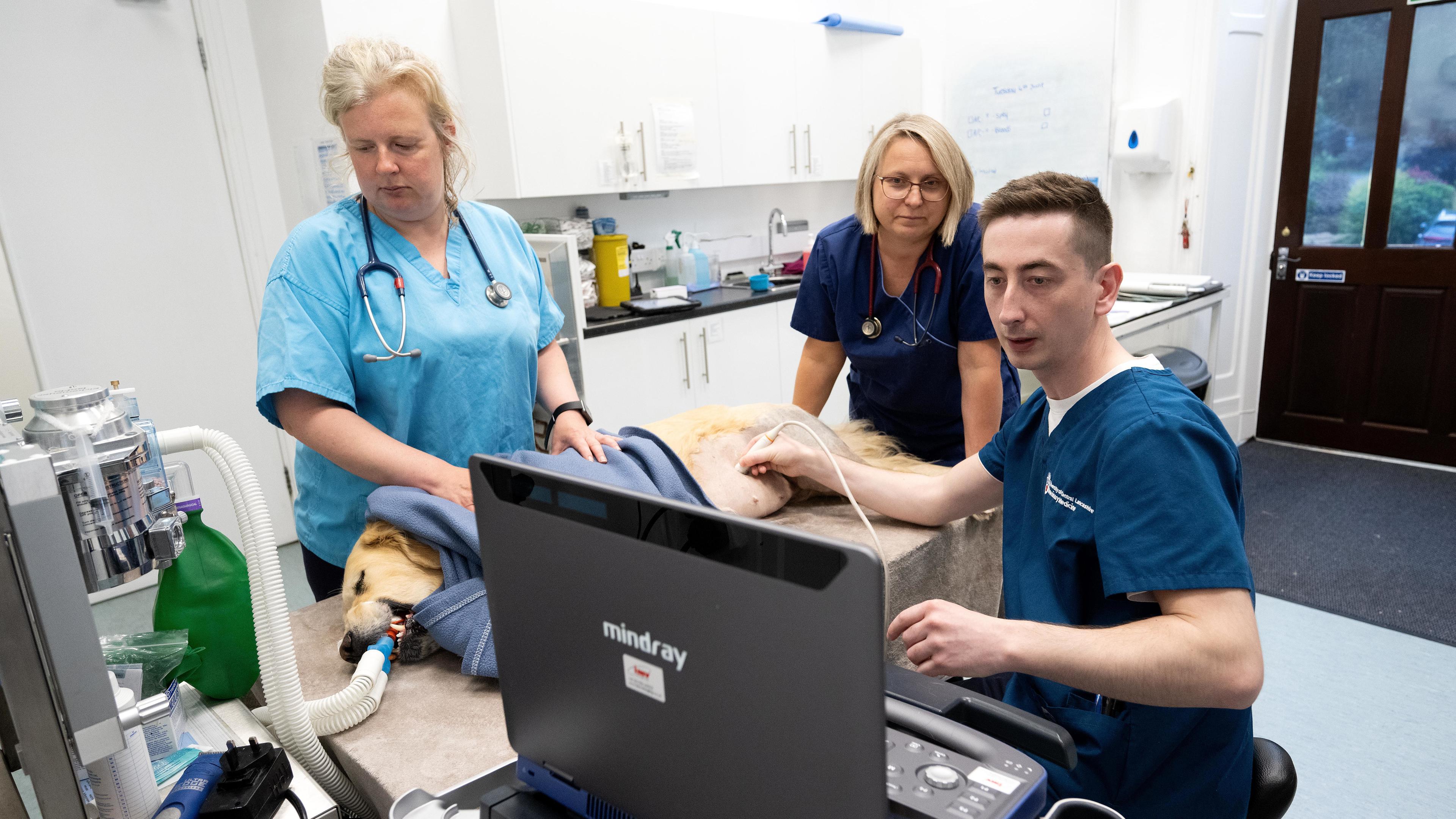Key facts:
- Wage - £32,000 - £65,000
- Hours – 40 hours per week (plus overtime)
- Education – Royal Collage of Veterinary Surgeons (RCVS) accredited veterinary medicine degree
- Place of work – Veterinary surgery, farms, stables, zoos
What does a vet do?
Vets provide care for sick and injured animals, as well as regular check-ups for healthy animals. You could work with lots of different species in a variety of settings.
Most vets will work in a veterinary surgery. You'll care for pets like cats, dogs, reptiles and small animals. You'll provide general check-ups, spaying and neutering, and treat sick and injured animals. This could include prescribing medication or carrying out surgery.
Some vets choose to specialise in an area like farm animals or horses. If you're a farm vet, you'll help farmers keep cows, sheep and chickens healthy. This includes preventing the spread of disease through vaccination. You'll also help animals to give birth.
Day-to-day responsibilities
- Diagnosing animals through physical examinations, blood tests, x-rays and scans.
- Prescribing medicine for sick or injured animals.
- Conducting surgery on sick or injured animals.
- Vaccinating animals to prevent disease.
- General check-ups for pets.
- Providing advice to pet owners.
- Spaying or neutering animals.
- Euthanising very sick or old animals.
How to become a vet
You need a Royal College of Veterinary Surgeons accredited degree to become a vet in the UK.
Our Bachelor of Veterinary Medicine and Surgery (BVMS) course covers all major animal species. This includes access to our working farm facilities at Myerscough College. This will allow you to specialise in your chosen area over time.
You'll learn about animal anatomy, behaviour and welfare. This knowledge will help you diagnose and treat animals. You'll also develop clinical veterinary skills, like how to handle animals safely. You’ll even get to work with our canine teaching team.
The University of Lancashire is one of the UK’s newest veterinary schools, with all the latest facilities. This includes a digital anatomy table, where you can learn more about animal physiology and biology. There's also a veterinary clinical communications and simulation suite, which includes a kennel, cattery, physiotherapy room and more.
Unlike other universities, you'll take part in intermural placements from Year One. You'll also complete extramural placements during the holidays. This means you'll gain clinical experience from the start of your course.
As a new School, we are currently working with the RCVS for accreditation. We should achieve full accreditation in 2028, once our first cohort graduate. But don't worry, in the unlikely event that we don't pass the accreditation, students may still be allowed to register after completing an RCVS-controlled exam.
What are the entry requirements for BVMS?
BVMS is a competitive course and you'll need good grades. You can see the full entry requirements on the course page.
You’ll also need to take part in an interview as part of the recruitment process. This takes the form of a Multiple Mini Interview (MMI). You'll go through short independent assessments in different stations. Offers will be made to the candidates with the best scores.
If you don’t meet the entry requirements for our BVMS course, you may be able to apply to our foundation year. This will give you an introduction to veterinary medicine and surgery, while teaching you the skills you need to progress onto the undergraduate course.
Can I become a vet with a bioveterinary sciences degree?
You cannot become a vet with a bioveterinary sciences degree. This is because it focuses on animal biology and science. You will not gain the clinical skills you need to become a vet.
However, you may be able to work in a similar field. This includes conservation, animal welfare or laboratory work. You could also work for government offices like the Department for Environment, Food and Rural Affairs.
Continuing Professional Development
Once you become a vet, you will need to take Continuing Professional Development (CPD) short courses. This will ensure that you remain up-to-date with the latest veterinary skills and knowledge.
At the University of Lancashire, we work with CPD Solutions to provide veterinary short courses. This includes small animal surgery, soft tissue surgery and diagnostic imaging.
Veterinary Medicine and Surgery (BVMS)
General
Useful links
Veterinary Medicine
Our brand-new School of Veterinary Medicine is the UK’s 11th Veterinary School, only the second in the North of England and the first in Lancashire.
School of Veterinary Medicine
Our brand-new School of Veterinary Medicine is the UK’s 11th Veterinary School, only the second in the North of England and the first in Lancashire.
Veterinary medicine contextual admissions
Widening participation is at the core of our mission. We firmly believe in helping people to seize every opportunity to flourish in education.
